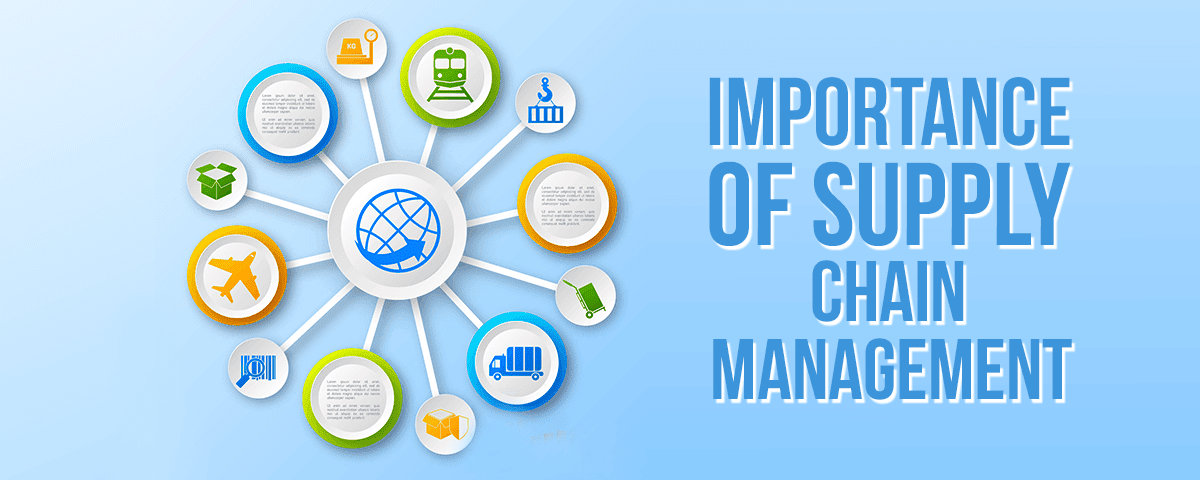What is Supply Chain Management and it’s 4 Importance?
Table of Contents
What is Supply Chain Management?
Supply chain management (SCM) is the wide scope of exercises required to plan, control and execute an item’s stream from materials to creation to dispersion in the most efficient manner conceivable.
Supply chain management is an expansive and complex undertaking that relies on each partner — from suppliers to manufacturers and beyond — to run well. Because of this, effective supply chain management also requires change management, collaboration and risk management to create alignment and communication between all the participants.

The Concept of Supply Chain Management (SCM)
- The first is that practically every product that reaches an end user represents the cumulative effort of multiple organizations. These organizations are referred to collectively as the supply chain.
- The second idea is that while supply chains have existed for a long time, most organizations have only paid attention to what was happening within their “four walls.” Few businesses understood, much less managed, the entire chain of activities that ultimately delivered products to the final customer. The result was disjointed and often ineffective supply chains.
You Might Also Like To Read: 5 Key Elements of Supply Chain
6 Components of Supply Chain Management
Planning
Enterprises need to plan and manage all resources required to meet customer demand for their product or service. They also need to design their supply chain and then determine which metrics to use in order to ensure the supply chain is efficient, effective, deliver value to customers, and meets enterprise goals.
Sourcing
Companies must choose suppliers to provide the goods and services needed to create their products. After suppliers are under contract, in supply chain management managers use a variety of processes to monitor and manage supplier relationships. Key processes include ordering, receiving, managing inventory, and authorizing supplier payments.
Making
Supply chain managers coordinate the activities required to accept raw materials, manufacture the product, test for quality, a package for shipping, and schedule for delivery. Most enterprises measure quality, production output, and worker productivity to ensure the enterprise creates products that meet quality standards.
Delivering
Often called logistics, this involves coordinating customer orders, scheduling delivery, dispatching loads, invoicing customers, and receiving payments. It relies on a fleet of vehicles to ship products to customers. Many organizations outsource large parts of the delivery process to specialist organizations, particularly if the product requires special handling or is to be delivered to a consumer’s home.
Returning
The supplier needs a responsive and flexible network to take back defective, excess, or unwanted products. If the product is defective it needs to be reworked or scrapped. If the product is simply unwanted or excess it needs to be returned to the warehouse for sale.
Enabling
To operate efficiently, the supply chain requires a number of support processes to monitor information throughout the supply chain and assure compliance with all regulations. Enabling processes include finance, HR, IT, facilities, portfolio management, product design, sales, and quality assurance.

SCM requires firms to put in place information systems and metrics that focus on performance across the entire supply chain. This is because individual units that seek to maximize their performance without regard to the broader impact on the supply chain can cause problems. For example, a manufacturing unit’s decision to minimize its inventory levels may reduce delivery performance to the end user.
Likewise, a distributor’s decision to chase highly seasonal demand may “bullwhip” its upstream partners, causing significant cost overruns. Putting in place the information systems and metrics needed to make intelligent decisions in the face of such trade-offs presents a significant challenge to supply chain partners.
Why is Supply Chain Management Important?
Powerful supply chain management limits cost, burn-through, and time in the creation cycle. The industry standard has become a just-in-time supply chain where retail sales automatically signal replenishment orders to manufacturers. Retail shelves can then be restocked almost as quickly as the product is sold. One way to further improve this process is to analyze the data from supply chain partners to see where further improvements can be made.
Supply chain management produces benefits such as new efficiencies, higher profits, lower costs, and increased collaboration. SCM enables companies to better manage demand, carry the right amount of inventory, deal with disruptions, keep costs to a minimum and meet customer demand in the most effective way possible. These SCM benefits are achieved through choosing effective strategies and appropriate software to manage the growing complexity of today’s supply chains.

Identifying Potential Problems
When a customer orders more products than the manufacturer can deliver, the buyer can complain about poor service. Through data analysis, manufacturers may be able to anticipate the shortage before the buyer is disappointed.
Decreases Purchasing Cost
Retailers depend on supply chains to quickly deliver expensive products to avoid holding costly inventories in stores any longer than necessary. For example, electronics stores require fast delivery of 60” flat-panel plasma HDTVs to avoid high inventory costs.
Decreases Production Cost
Manufacturers depend on supply chains to reliably deliver materials to assembly plants to avoid material shortages that would shut down production. For example, an unexpected parts shipment delay that causes an auto assembly plant shutdown can cost $20,000 per minute and millions of dollars per day in lost wages.
Decreases Total Supply Chain Cost
Manufacturers and retailers depend on supply chain managers to design networks that meet customer service goals at the least total cost. Efficient supply chains enable a firm to be more competitive in the marketplace. For example, Dell’s revolutionary computer supply chain approach involved making each computer based on a specific customer order, then shipping the computer directly to the customer.
As a result, Dell was able to avoid having large computer inventories sitting in warehouses and retail stores which saved millions of dollars. Also, Dell avoided carrying computer inventories that could become technologically obsolete as computer technology changed rapidly.
Thanks For Reading: What is Supply Chain Management and it’s 4 Importance?




